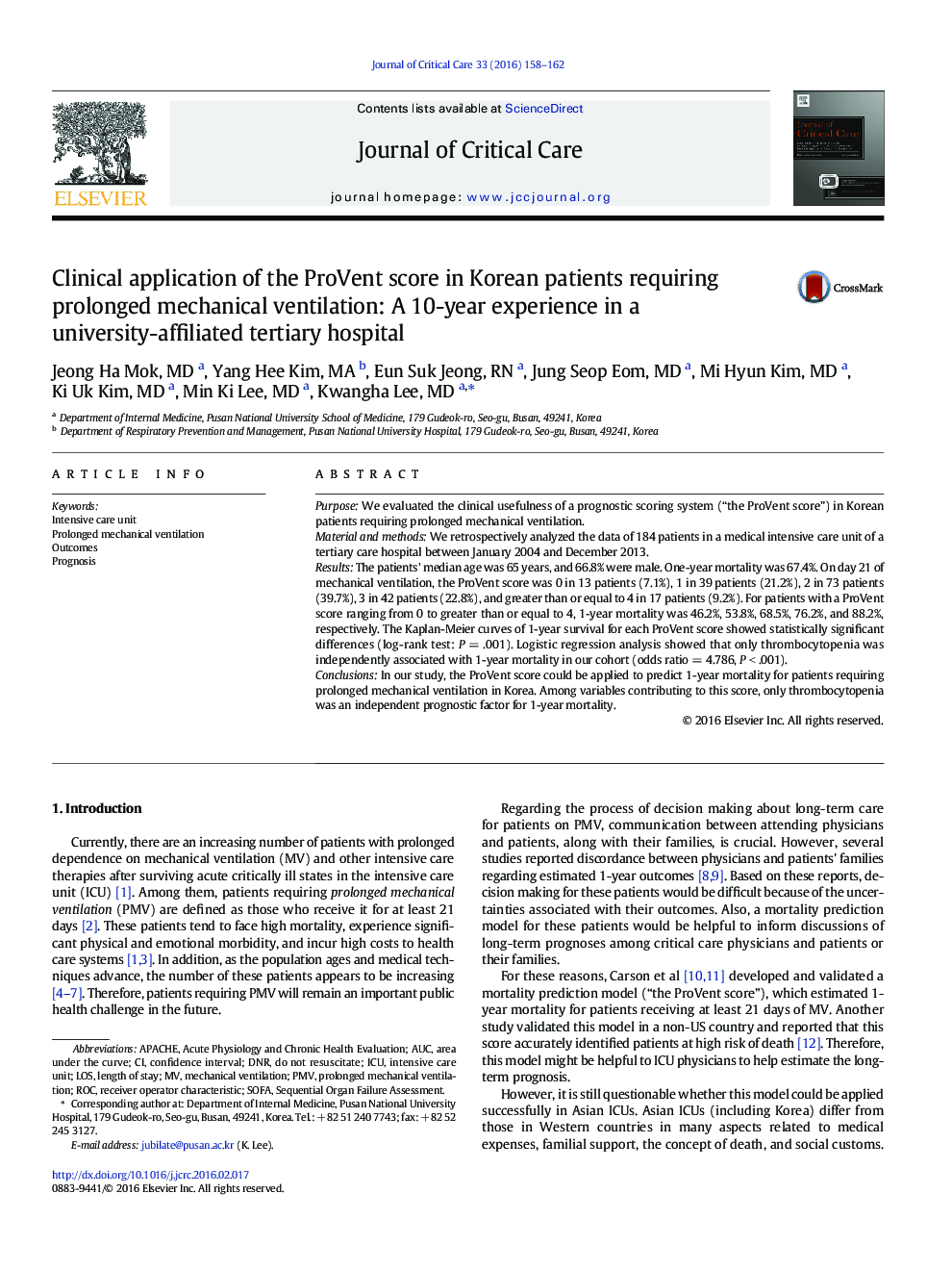| Article ID | Journal | Published Year | Pages | File Type |
|---|---|---|---|---|
| 2764337 | Journal of Critical Care | 2016 | 5 Pages |
PurposeWe evaluated the clinical usefulness of a prognostic scoring system (“the ProVent score”) in Korean patients requiring prolonged mechanical ventilation.Material and methodsWe retrospectively analyzed the data of 184 patients in a medical intensive care unit of a tertiary care hospital between January 2004 and December 2013.ResultsThe patients' median age was 65 years, and 66.8% were male. One-year mortality was 67.4%. On day 21 of mechanical ventilation, the ProVent score was 0 in 13 patients (7.1%), 1 in 39 patients (21.2%), 2 in 73 patients (39.7%), 3 in 42 patients (22.8%), and greater than or equal to 4 in 17 patients (9.2%). For patients with a ProVent score ranging from 0 to greater than or equal to 4, 1-year mortality was 46.2%, 53.8%, 68.5%, 76.2%, and 88.2%, respectively. The Kaplan-Meier curves of 1-year survival for each ProVent score showed statistically significant differences (log-rank test: P = .001). Logistic regression analysis showed that only thrombocytopenia was independently associated with 1-year mortality in our cohort (odds ratio = 4.786, P < .001).ConclusionsIn our study, the ProVent score could be applied to predict 1-year mortality for patients requiring prolonged mechanical ventilation in Korea. Among variables contributing to this score, only thrombocytopenia was an independent prognostic factor for 1-year mortality.
